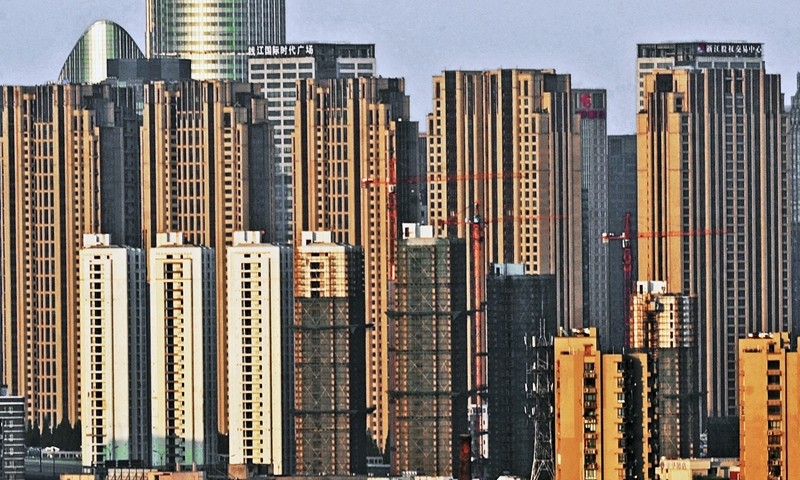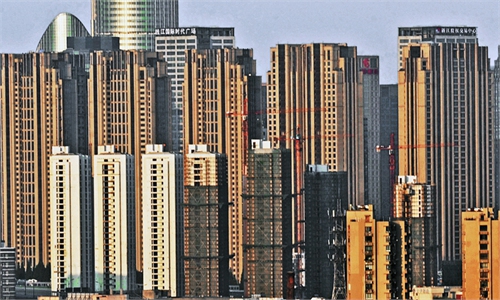China’s property market set to rebound in 2023; sales, investment to pick up
Housing sales to pick up in Q1; investment to improve in Q2: experts

real estate Photo:Xinhua
China will support the healthy development of the property market, which is still a pillar industry for the economy, said Chinese Vice Premier Liu He on Tuesday. The remarks underscore China's efforts to stabilize the domestic real estate sector, which will make a more sustainable contribution to the economy after regulation, analysts said.
The real estate sector accounts for nearly 40 percent of bank lending, 50 percent of overall local government fiscal resources, and 60 percent of urban household assets in China, Liu said at the World Economic Forum's annual meeting in Davos, Switzerland.
China is committed to stabilizing expectations, providing reasonable liquidity and relaxing restrictions that were formerly introduced to address overheating in the market, Liu said.
China's urbanization is still on a fast track, and the enormous potential demand generated in this process will provide a strong underpinning for the development of the real estate sector, Liu added.
The comments send a signal that the authorities will spare no effort to stabilize the domestic real estate market, but red-hot growth will be a thing of the past, given the current economic structure focused on industry and the real economy, Li Youhuan, a research fellow at the Guangdong University of Finance & Economics, told the Global Times on Wednesday.
During a video conference on Tuesday, the Ministry of Housing and Urban-Rural Development vowed to promote the delivery of homes, resolve developers' financing risks and vigorously support both inelastic demand and upgrading.
Regulators vowed to speed up efforts to solve housing difficulties for new citizens and young people with a focus on rental housing for low-income groups.
"It's expected that the central government will announce more policies to stabilize housing prices, and step up efforts to contain and resolve potential risks," Li said, noting that all of the restrictions such as purchase and resale restrictions may be removed in most cities to bolster the market and boost its healthy development.
Starting in the second half of 2021, China has experienced a rapid decline in property prices and home sales. Many developers had liquidity problems and deteriorating balance sheets.
Investment in real estate in 2022 fell 10 percent from 2021. Property sales slumped by 26.8 percent, the National Bureau of Statistics said on Tuesday.
Given policies to assist homebuyers and property developers, it is expected that the real estate industry will stabilize in 2023, experts said.
The prospects of a real estate recovery are optimistic, property sales are expected to gradually stabilize in the first quarter, and real estate investment is expected to stabilize and recover in the second quarter, Zhou Maohua, an economist at Everbright Bank, told the Global Times.
Policy support to stabilize the property market is unprecedented. Lowered mortgage interest rates and thresholds for housing purchases are likely to yield fruit soon, Zhou said.
On the demand side, as COVID-19 restrictions eased, economic activity is expected to gradually return to normal, which will boost employment and income growth, bringing housing demand up accordingly, Zhou added.
Real estate policy is also in focus in various local government work reports. For example, Shanghai has set clear targets to improve living conditions, renovate old houses and support rental housing for low-income groups.
Thanks to policies to support the stable and sound development of the property market, the sector may play a larger role in driving economic growth in 2023, Deng Haiqing, chief economist of AVIC Fund Management Co, told the Global Times.
"Young people's property demand for marriage and children was delayed over the past two years due to a comparatively high unemployment rate. The market will start to recover in 2023," Deng said, noting that transactions to meet inelastic demand and upgrading may grow this year.



